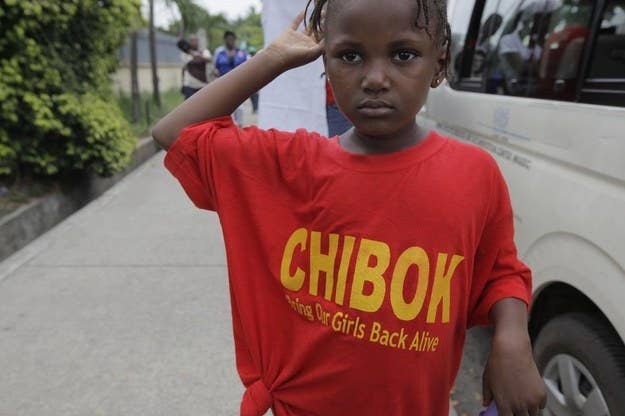
ABUJA, Nigeria — When Boko Haram kidnapped 300 schoolgirls in Nigeria a month ago, it grabbed international attention. But the Islamist separatist group has been carrying out this kind of violence in Nigeria's north for five years. Now, a new initiative called the Testimonial Archive Project aims to capture the voices of its victims.
Most of the coverage of the group has been about "the amount of people who died, and here's what the politicians think of it," says Saratu, a young Nigerian who prefers to go by only her first name, who began the project in February. "No one is listening to the voices of the people affected."
For the project, Saratu networks with people in Abuja, where she lives, and connects with residents of the northeast on the telephone. She records interviews and uses interpreters when needed. And she is no nonsense about security: She publishes only the first names of those she speaks to, and in some cases has disguised voices at the request of her interviewees.
It's been one month since the girls were kidnapped from their school dormitory in Chibok, a village about 80 miles from the Borno State capital of Maiduguri. But these were hardly the first assaults on schoolchildren by Boko Haram, let alone its first attacks on villages.
Here, Saratu shares some excerpts from the Testimonial Archive Project's first three months of interviews with survivors of past Boko Haram violence.
Ahmed fled Maiduguri after his two brothers were killed on their way to register for school:
"There were two of my younger ones that we went home to pay for their school fees. At the end of the day, they went to register when those guys struck and killed the two of them and that's one bitter experience. Some military men were pursuing one of the guys and was holding gun. We entered into one corner. The people of that area, they are the one who took the guy, brought one of the guys into their home and hid him, instead of releasing the guy to the military to arrest him and then maybe persecute. They said that the man is working for them. With the way things are happening in my place before, we thought these guys were out for something like maybe religion, but from what we are seeing it's like it is beyond religion. We cannot know what exactly is happening in my area. Everyone is being attacked. There's no discrimination against religion, sex, or any other thing. They just attack at random.
"...In May last year, they went and burnt our house down. So these guys burnt our house down, but we give God glory, no life was lost in my family, but the house was razed down completely. Up until now, nothing has been done about the house, and the state government… but I don't want to speak much about that, because it's like there's a lot of politics about what is going on. I don't want to speak much about that. I just hope that God would give us the strength to get our house back...."
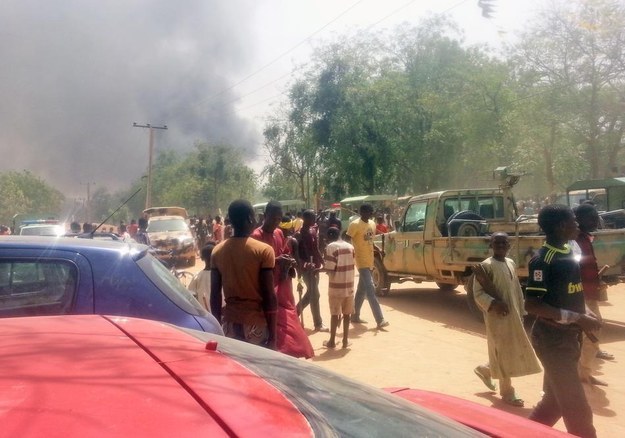
Amina, a nurse and wife who fled Maiduguri because of the violence, says terrorism disproportionately affects the poor:
"Formerly the North was a peaceful place, but this thing [Boko Haram] has affected our community drastically, because most of our people that are in Borno State, those that are petty traders and are engaged in other businesses, most of them… some have been killed, some have relocated. And you know most of us including myself are no more in Borno, including other friends of mine, you know. All of us we are managing where we are.
"We have been praying so the state will be normal again, so that by the grace of God we can go back to our houses in Maiduguri and Borno State in general. So it has really affected us, and not only our community.
"Right now, this thing has affected almost everybody, everybody, every normal human being in Borno State has been affected. Mostly non-indigenes have left, even in the university, state hospital, even in the management board, most of the non-indigenes have left. And yes, it's actually affecting services seriously. A lot of people are retiring and some that have retired have no replacement, no deployment. That affects hospitals seriously. And when the hospitals are affected, it's the poor people that are affected. There is difficulty in employing more people; If possible they could have been employing more nurses and doctors...."
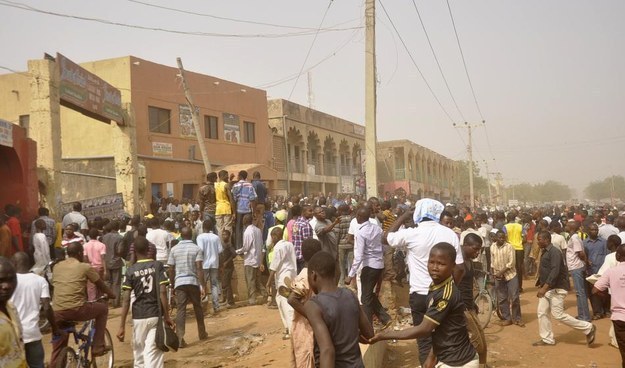
Hamid, who lives in Maiduguri, describes the economic devastation Boko Haram has wrought:
Bismillah Ar Rahman, Ar Rahim (In the name of Allah, the Most Gracious, the Most Merciful), we are facing challenges in the town no doubt, but with what we have seen before it has subsided...What concerns us is that which is currently happening at the villages and the sad events around us.
Well, when God brings a plague, or problems like this, there are bound to be challenges no matter how little. We have faced serious problems in our commercial activities, with our families, it is affecting the education of our children....Our buying and selling activities have dropped, even the usual day-to-day hustle.
...The people in towns and villages depend on themselves. The challenges are severe in the villages because now they cant stay in their homes or go to farm as usual and this leaves the towns without food. Those in the villages are usually farmers, we in the city are mostly into business. We buy their produce, we pay them and they survive. We pray to God to bring an end to all this, to protect us, and forgive those that have gone during this problem.
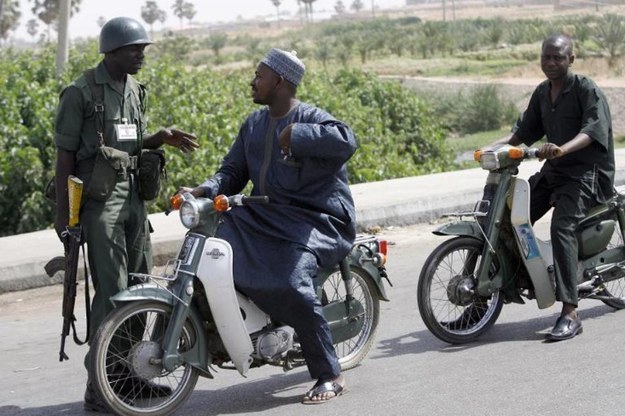
Yusuf, a youth activist in Maiduguri, describes how youth have created community watch structures, and how women contribute to collective security:
Now, as young people are under pressure, I think the rest of them that are remaining [in Borno] have no alternative but to come together to seek ways to be safe. You can see young people under the Youth Vanguard willingly submitting their own energy and time to checking the influx of people and looking into the nooks and crannies of their neighborhoods to ensure there are no threats....
It happens at different levels, since they have different political wards. It has been decided that youth residing in a particular political ward should have their leadership structure. With that, the leader will have control over monitoring, checking vehicles and individuals passing on the streets, for the safety of people. They normally monitor 24/7 to make sure that within their own area, nothing wrong happens. If there is any suspicious behavior, you find them exposing things that were not even imagined by even the security forces....
In our environment, there are cultural and religious values that guide the behavior of people, so the role of women cannot be done openly, inasmuch as information that is important and factual is concerned. Women have the opportunity to share their information with people who they know can act on that information. You do not see them featuring so prominently...There was a religious injunction that women cannot be checked by men, so the cars in which women drive or with women in their purdah, it is the women who will check them. So it means they are cooperating on that level.
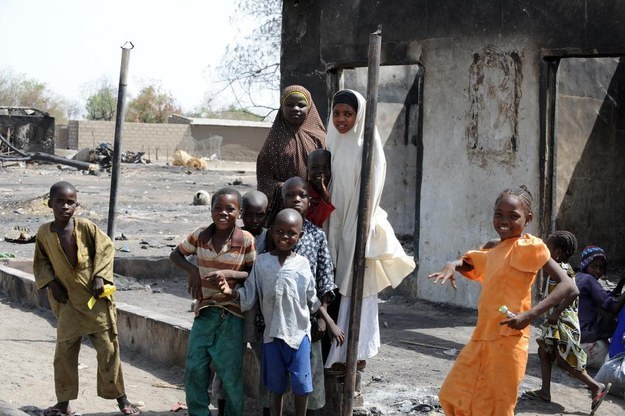
Hussaina, a community service worker in Maiduguri, describes the suffering and mistrust terrorism has brought to her community, and the deep doubt of Nigeria's security forces:
"Initially, Borno State is a state where Muslims and Christians have been leaving together very cordially and in peace. And during this insurgency, a few years ago, and now on Feb. 18, the violence has affected even the development of the state. People are displaced.
"There was a woman that lost six of her children on February 19th. Burn her house, burn her children to ashes, no recognition. And up to today as I'm speaking to you, I have never heard whether government has assisted her or rebuild her house or given her any compensation.
"Another one too in Umurari, a driver with seven children. His house was demolished. He found a place and just made a small shed with his children, believe that during his retirement he would go back to his village in Dambua local government. In the last two months, his house in the village was burnt, two people were killed in that house. No compensation.
"Government has not come to their aid to see what is happening or even to take their statistics. The only assistance that government is doing, to me I have observed there is bias. Some local government... has visited. Others government has not visited. To me I believe that what happens to a person happens to God. It shouldn't have this segregation...
"We have widows that have been crying seriously for help. Especially now that school has opened. School fees [are] a problem. And nobody is willing to take responsibility of another person because of the situation we are in... And security men, too, have lost their lives. If something is happening, if you ask them to go, they will not go., they will kill them, they will drive their families from the house. They would not have any benefits to support the family.
"So this thing is becoming so problematic in the state. Nobody can go out and say 'this is what is happening.' And this thing has really affected the society. You cannot move freely in the town. People will come to us and say 'people have written us letters that they will be coming.'
"People are even saying 'maybe government is involved.' If not, why is this thing continuing for the past six years and no solution to it?" People are walking helter-skelter, OK. 'Who are the shadows? Who are the people sponsoring it?' Up 'til today, we have never found out. You will find out that they have paraded this person as Boko Haram, and the person arrested will say I was sent by this person". And up till today, nobody has ever brought out that person publicly as introducing these people. Up 'til today, these soldiers won't tell us 'these are the sponsors.' We have never seen anyone say 'these are the people sponsoring this violence.'
No stop to it."
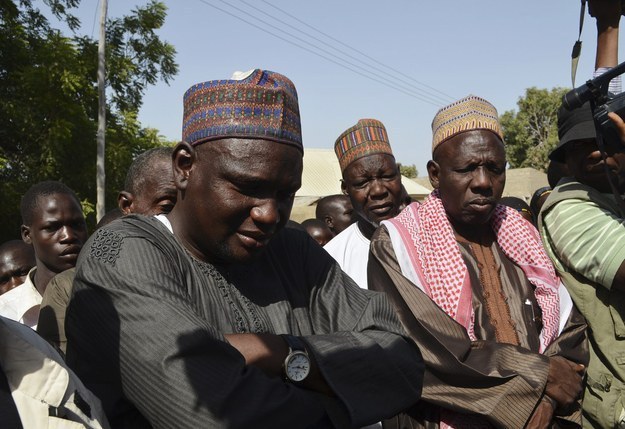
Halima, a businesswoman in Adamawa state, on the vulnerable border with Cameroon, says, "It's not what they take, it's what they do to you that is the problem."
"You have young guys that have not been able to go to school, or they have been to school but they don't have jobs. And because of that they use that opportunity to rob, disturbing people, crime… the problem is that everybody, all of us here, we don't sleep with two eyes closed. We sleep with an eye open. And also, everyone in the community is concerned about this.
"Just recently, some young boys came into my house in the middle of the night around three o'clock. They robbed us. True, they had not touched anybody, but they came in numbers, about 10 of them, and then after coming into the house they broke into the house, after they broke into the house they woke up everybody – in fact, smashing doors, smashing windows, and then they entered, they didn't touch anybody.... Even the neighbors, when something happens like that they don't feel comfortable because you [hear] somebody house being smashed or crashed or people, in the middle of the night, they can't be free. Nobody will come out and help you, no matter what you do. If you scream, it is useless. If you even call police they would not come. By the time they come, these people have gone. Also...if something happened to my neighbor I won't go out. I would be even afraid of calling police, because first of all, we don't know if they are the ones who are robbing you.
"....Everywhere, everywhere I can say in my state everyone is not sleeping peacefully. I have stayed in my neighborhood for 35 years, nothing happened like that. Except now. Now that I don't even have a husband, I and my children and my partner are all living like this. And the irony of it is that there are rich, rich people with big, big mansions, they don't go into those kinds of houses, because they know that maybe they have security. They go into poor people's houses. It's not what they take, it's what they do to you that is the problem.
"These kinds of things happen in all the three states that they say are emergency states. And sometimes you would see them in something like uniform. They put something on top of it that you don't get. When you hear People say "don't tell the police, is it the police that are coming up to come and rob people." So you see, it's not easy for somebody to even talk about this. But I'm talking not because I don't want people to hear, but what I don't want they have already done to me, so why can't I come and talk?
"And it's not only Adamawa state; it's in every one of these local governments and states. So there is a lot of problems that people are facing. Sometimes they think these people that break into your houses, are people that run away from other states. And when they are in your place they will just do that, because they don't have anything else to do. If you say you'll call you the police, they would say "don't call the police because they're the one's doing this". If you say let's call the soldiers, people they would say, "don't do this because they are conniving with them to do all this rubbish".
